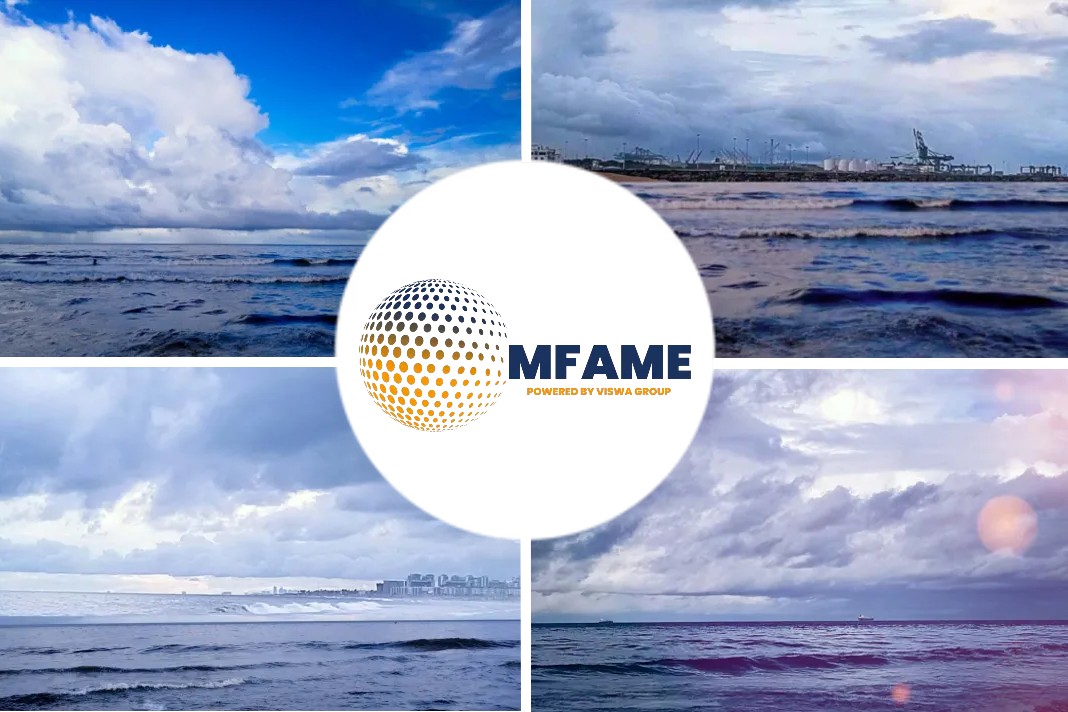The MAIB published an investigation report on the loss of 137 containers from the containership CMA CGM G. Washington. The report highlights the details pertaining to the reasons for the accident.
What happened?
At 0127 on 20 January 2018, the UK fagged container ship CMA CGM G. Washington
unexpectedly rolled 20° to starboard, paused for several seconds then rolled 20° to port.
The ship was experiencing heavy seas in the North Pacifc Ocean while on passage from
Xiamen, China to Los Angeles, USA. As the sun rose later that morning, it was discovered
that container bays 18, 54 and 58 had collapsed; 137 containers were lost overboard and a
further 85 were damaged.
The outcome of the investigation
The MAIB investigation concluded that the collapse of all three bays probably occurred
during the 20° rolls. The amplitude of the rolls exceeded the ship’s estimated roll limits
and was almost certainly the consequence of parametric rolling, which had been recorded
by the ship’s motion monitoring decision support tool. The risk of parametric rolling was
not identifed by the master or his bridge team because they were unaware of the full
capabilities of the decision support tool, and therefore were unaware of its predictions.
The investigation identifed several factors that would have adversely afected the safety of
the container stows on deck. These included: reduced structural strength of non-standard
53ft containers, inaccurate container weight declarations, mis-stowed containers and loose
lashings.
Conclusion of the report
● Bay 54 collapsed because the acceleration forces generated during the large rolls
exceeded the structural strength of the non-standard 53ft containers stowed in the
bay.
● Bay 58 collapsed because some of its containers were struck by the 53ft containers
as they toppled overboard.
● Bay 18 collapsed as a result of a combination of factors and was probably initiated by
the structural failure of one or more containers.
Action taken
Action has been taken by CMA Ships, in conjunction with ABB, the manufacturer of the
Octopus decision support tool, to improve its presentation of ship-handling advice to
masters in bad weather. The training package for operators of this system has also been
reviewed. Bureau Veritas, CMA CGM G. Washington’s classifcation society, has now
amended its rules for the carriage of 53ft containers.
Recommendations made
● CMA ships, to ensure that, where container terminals routinely weigh containers prior
to loading, the cargo plan is updated to refect these weights.
● The Maritime and Coastguard Agency, to promote UK container owners’ involvement
in Bureau Internationale des Containers databases.
● Bureau Veritas, to amend its rules to require the approved lashing software installed
on the onboard loading and lashing computer to calculate and display maximum roll
and pitch angles associated with ship loading condition and intended passage; and,
review its rules and approval procedure to ensure Container Safety Certifcation data
is accurately refected within the ship’s loading and lashing computer, whatever the
type of container, compliant with ISO standard or not.
Did you subscribe to our daily newsletter?
It’s Free! Click here to Subscribe!
Source: Assets Publishing Services






















